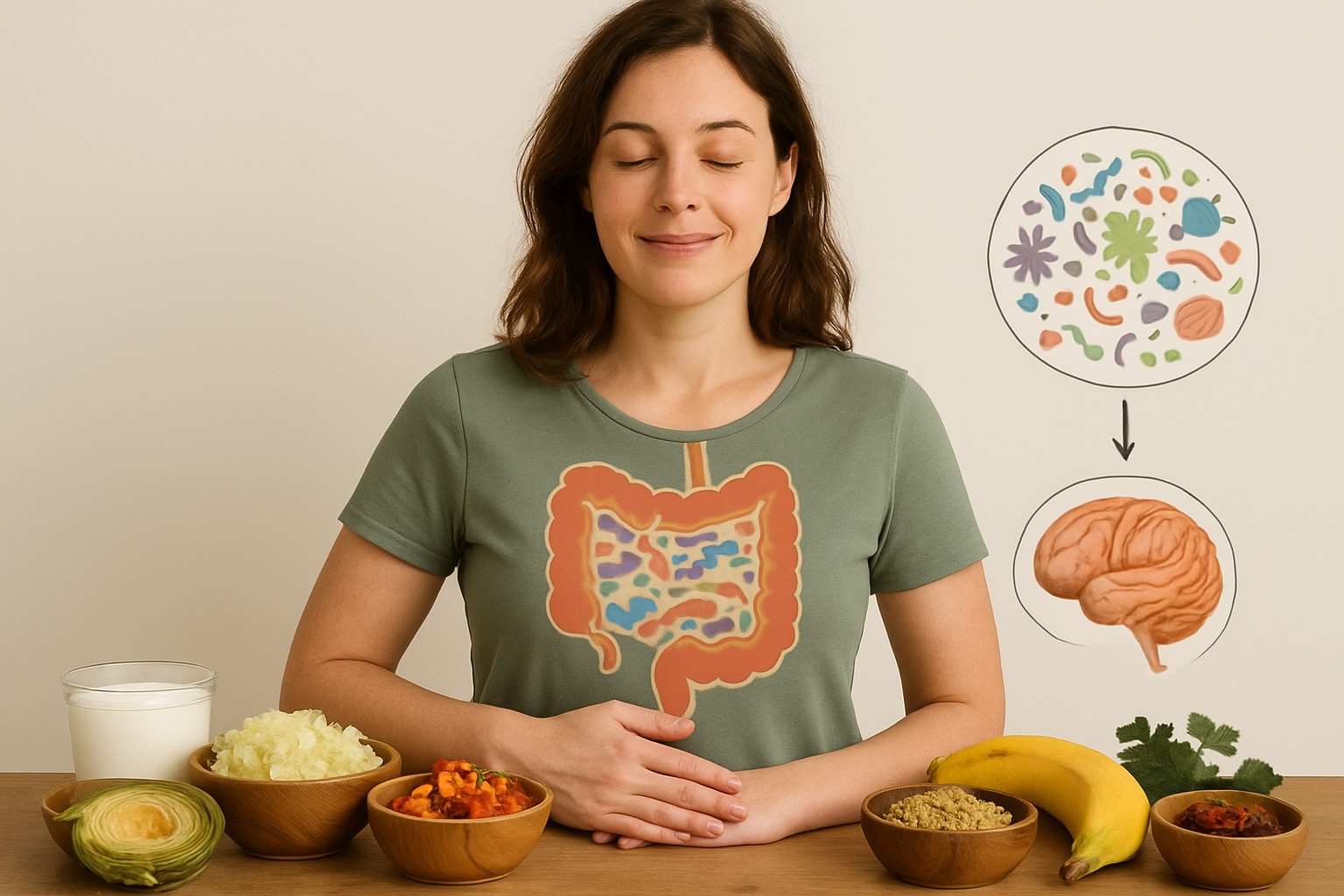News
Gut and Mind: The New Frontier of Wellbeing Lies in the Microbiota
In recent years, integrative medicine has seen growing interest in holistic approaches that consider the interconnection between mind and body. In particular, the gut-brain axis has emerged as a key element in understanding both mental and physical health. Recent studies have shown that the gut microbiota influences not only digestion but also mood, behavior, and stress response.
The gut microbiota is composed of trillions of microorganisms that play a crucial role in regulating the immune system, producing neurotransmitters, and protecting the intestinal barrier. Dysbiosis—an imbalance in microbial populations—can lead to systemic inflammation and negatively affect mental health. For example, one study showed that a diet rich in prebiotics and fermented foods can improve microbiota composition and reduce perceived stress in healthy adults.
Prebiotics, such as inulin and fructooligosaccharides (FOS), are non-digestible fibers that feed beneficial bacteria in the gut. These compounds promote the production of short-chain fatty acids like butyrate, which have anti-inflammatory effects and support the health of the intestinal mucosa. Furthermore, prebiotics can modulate the production of neurotransmitters such as serotonin, positively influencing mood and cognitive function.
Probiotics, on the other hand, are live microorganisms that, when consumed in adequate amounts, confer health benefits to the host. Specific strains, such as Lactobacillus plantarum PS128, have been shown to modulate dopamine and serotonin levels in the central nervous system, helping to improve mood and reduce depressive symptoms. The combination of prebiotics and probiotics—known as synbiotics—can offer a synergistic approach to supporting mental health.
Adopting a psychobiotic diet, which includes foods rich in prebiotics and probiotics, represents an important step toward holistic wellbeing. Foods like yogurt, kefir, sauerkraut, kimchi, bananas, garlic, and onions can help maintain a balanced microbiota. Additionally, the use of natural adaptogens, such as ashwagandha and rhodiola, can help the body manage stress and enhance psychophysical resilience.
In conclusion, the integration of mindful dietary practices and natural supplements may represent an effective strategy to promote both mental and physical health. Ongoing research continues to explore the connections between gut microbiota and psychological wellbeing, opening new perspectives for alternative and complementary therapeutic approaches.
The gut microbiota is composed of trillions of microorganisms that play a crucial role in regulating the immune system, producing neurotransmitters, and protecting the intestinal barrier. Dysbiosis—an imbalance in microbial populations—can lead to systemic inflammation and negatively affect mental health. For example, one study showed that a diet rich in prebiotics and fermented foods can improve microbiota composition and reduce perceived stress in healthy adults.
Prebiotics, such as inulin and fructooligosaccharides (FOS), are non-digestible fibers that feed beneficial bacteria in the gut. These compounds promote the production of short-chain fatty acids like butyrate, which have anti-inflammatory effects and support the health of the intestinal mucosa. Furthermore, prebiotics can modulate the production of neurotransmitters such as serotonin, positively influencing mood and cognitive function.
Probiotics, on the other hand, are live microorganisms that, when consumed in adequate amounts, confer health benefits to the host. Specific strains, such as Lactobacillus plantarum PS128, have been shown to modulate dopamine and serotonin levels in the central nervous system, helping to improve mood and reduce depressive symptoms. The combination of prebiotics and probiotics—known as synbiotics—can offer a synergistic approach to supporting mental health.
Adopting a psychobiotic diet, which includes foods rich in prebiotics and probiotics, represents an important step toward holistic wellbeing. Foods like yogurt, kefir, sauerkraut, kimchi, bananas, garlic, and onions can help maintain a balanced microbiota. Additionally, the use of natural adaptogens, such as ashwagandha and rhodiola, can help the body manage stress and enhance psychophysical resilience.
In conclusion, the integration of mindful dietary practices and natural supplements may represent an effective strategy to promote both mental and physical health. Ongoing research continues to explore the connections between gut microbiota and psychological wellbeing, opening new perspectives for alternative and complementary therapeutic approaches.



